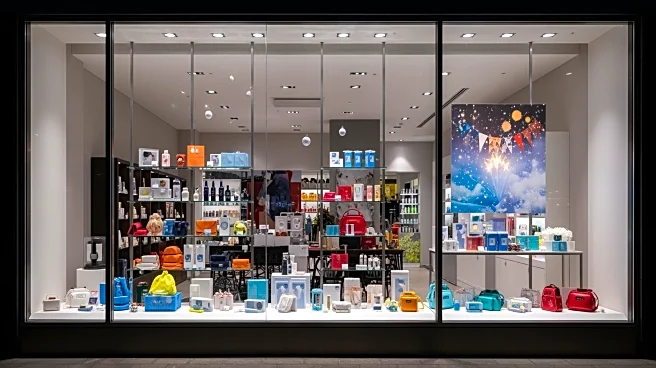What's Happening?
Retailers across the United States are initiating early Black Friday sales, a trend that has been growing in recent years. Traditionally held the day after Thanksgiving, Black Friday sales are now starting weeks in advance, with major retailers like Target,
Best Buy, and Amazon offering discounts as early as October. This shift is partly due to changing consumer behaviors and the competitive retail environment, where businesses aim to capture holiday spending earlier. The extended sales period allows consumers more time to shop and potentially find better deals, although it also complicates the decision-making process as some retailers have abandoned price match and price protection policies during this period.
Why It's Important?
The extension of Black Friday sales reflects broader shifts in retail strategies and consumer expectations. For consumers, this means more opportunities to find deals, but also requires careful planning to avoid overspending or missing out on better prices later. Retailers benefit by spreading out the holiday shopping season, potentially increasing overall sales and reducing the logistical challenges of handling a single-day shopping frenzy. However, the abandonment of price match policies could lead to consumer dissatisfaction if prices drop further after purchases. This trend also highlights the impact of economic factors, such as potential tariffs, on pricing strategies and consumer spending.
What's Next?
As early Black Friday sales continue to expand, consumers may need to become more strategic in their shopping habits, comparing prices across different retailers and timing their purchases to maximize savings. Retailers might further refine their sales strategies, possibly introducing new incentives or loyalty programs to attract and retain customers. The ongoing evolution of Black Friday could also influence other major shopping events, prompting retailers to rethink their approach to sales and promotions throughout the year.
Beyond the Headlines
The shift towards early Black Friday sales may have deeper implications for the retail industry, including changes in supply chain management and inventory planning. Retailers might need to adjust their operations to accommodate the extended sales period, potentially affecting employment patterns and seasonal hiring. Additionally, the trend could influence consumer culture, as the traditional excitement and urgency associated with Black Friday evolve into a more prolonged shopping experience.















